Botany final exam
1/48
There's no tags or description
Looks like no tags are added yet.
Name | Mastery | Learn | Test | Matching | Spaced |
|---|
No study sessions yet.
49 Terms
Solitary flower
a single flower on an upright stalk; also called a terminal or axillary flower.
Inflorescence
Cluster of flowers on the same stalk
Spike
Inflorescence consisting of a central stalk (rachis) with sessile, or nearly sessile, flowers
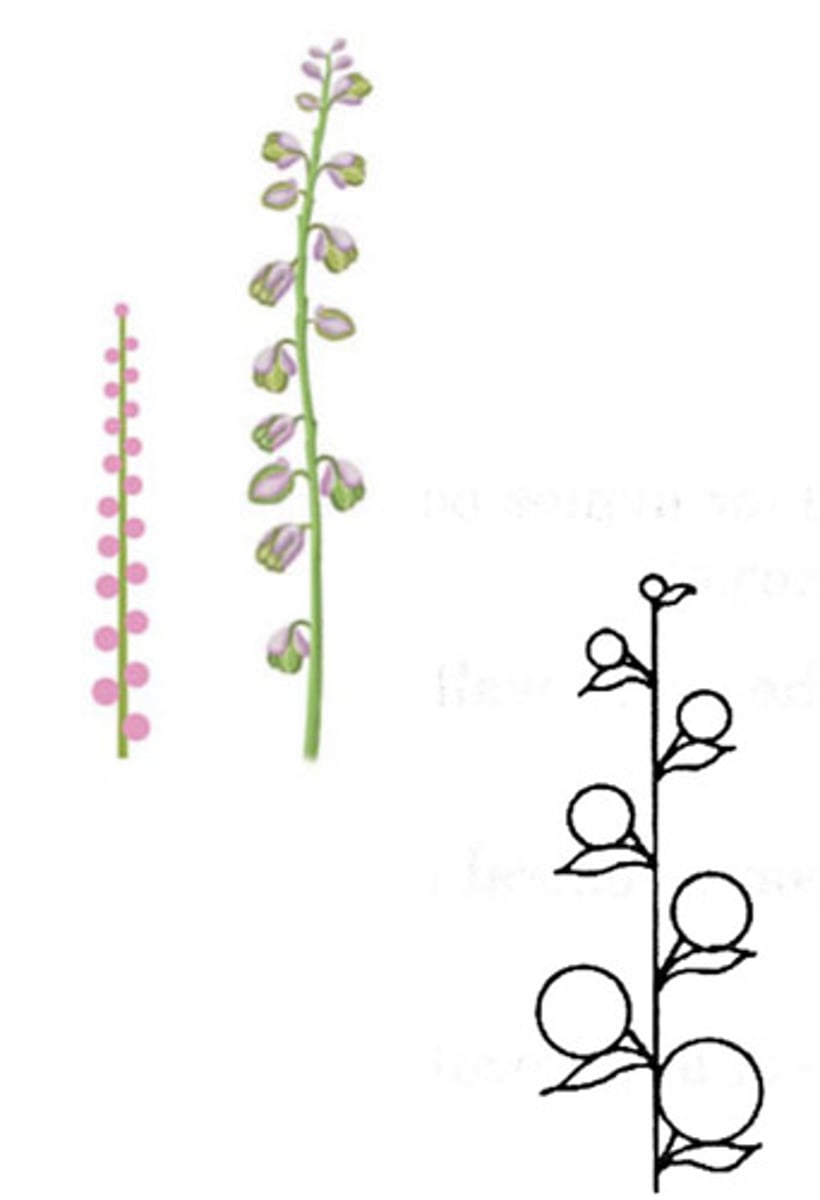
Catkin
A pendant spike with apetalous unisexual (imperfect) flowers - typically has staminate flowers- also called an ament
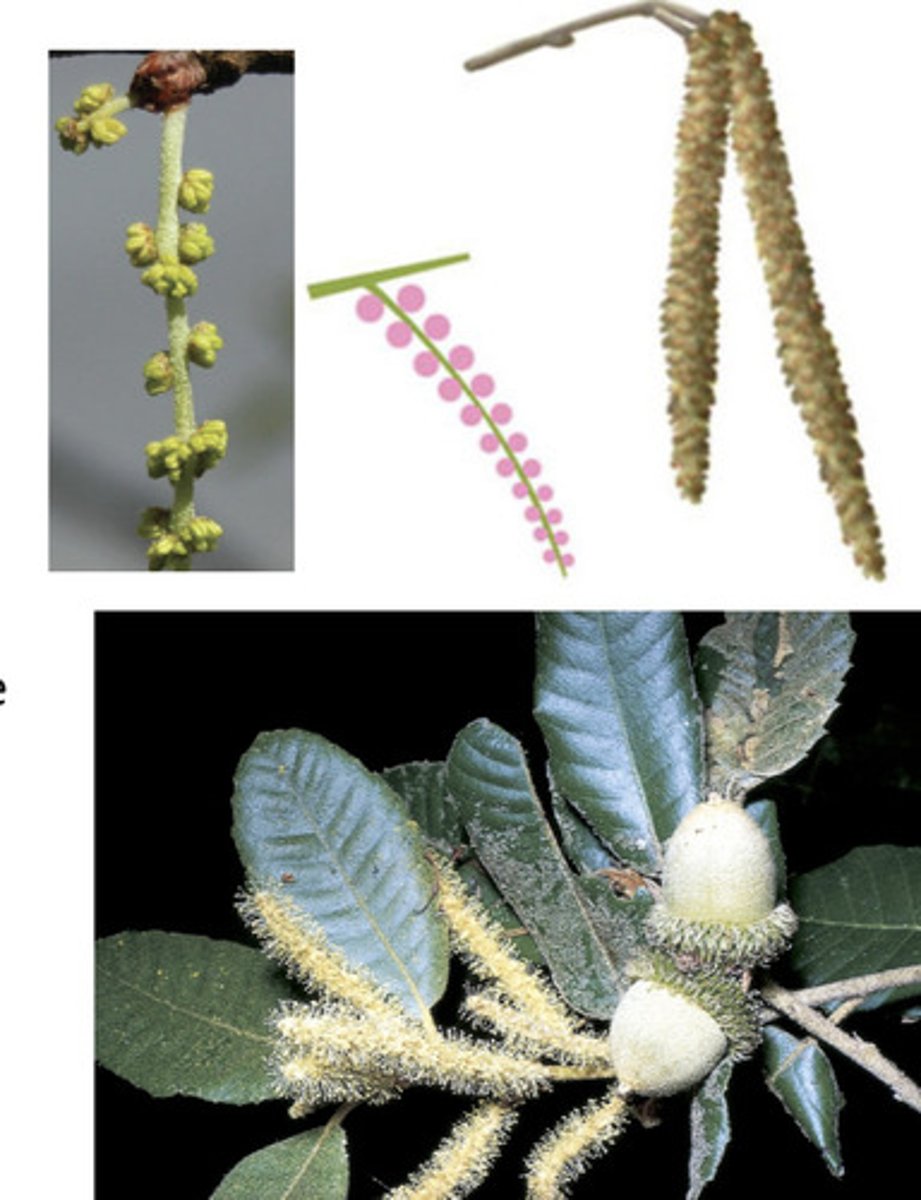
Raceme
Inflorescence consisting of a central stalk (rachis) with flowers on pedicels

Corymb
Inferrescense consisting of central stalk (rachis) and a few flowers on pedicels in which ① the pedicels of the more proximal flowers are much longer than those of distal flowers (which gives inflorescence flat appearance ) and ② flowers on proximal pedicels open earliest
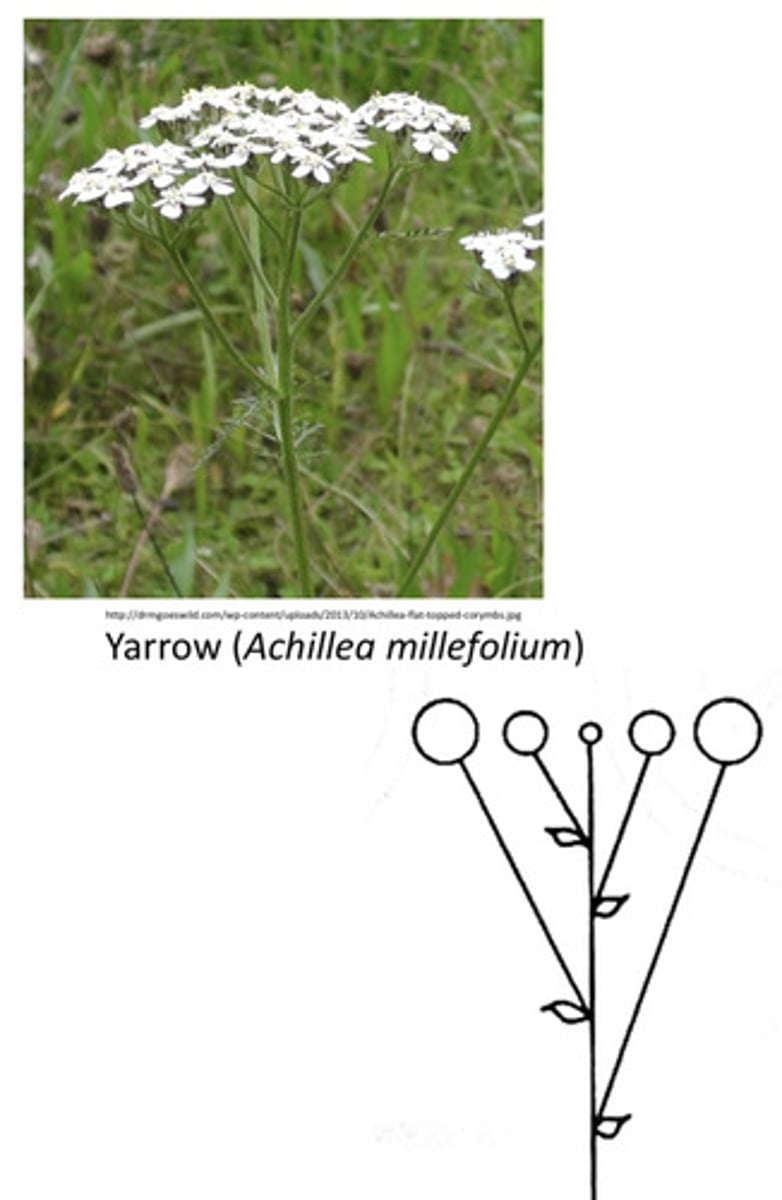
Cyme
Inflorescence with few flowers on pedicels in which the individual flowers occur at same level- central or terminal flower opens earliest
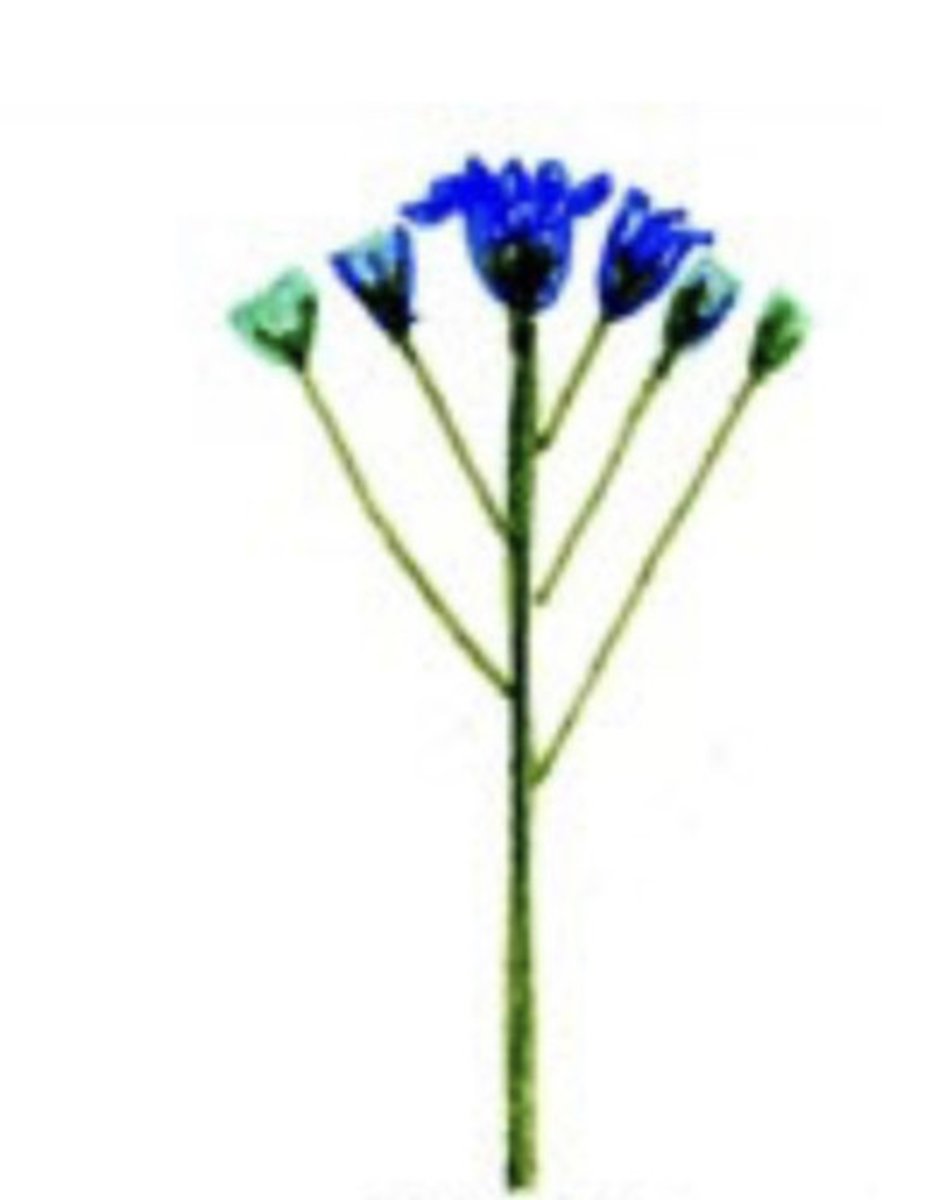
Panicle
Indefinitely branching inflorescence -essentially a raceme or corymb
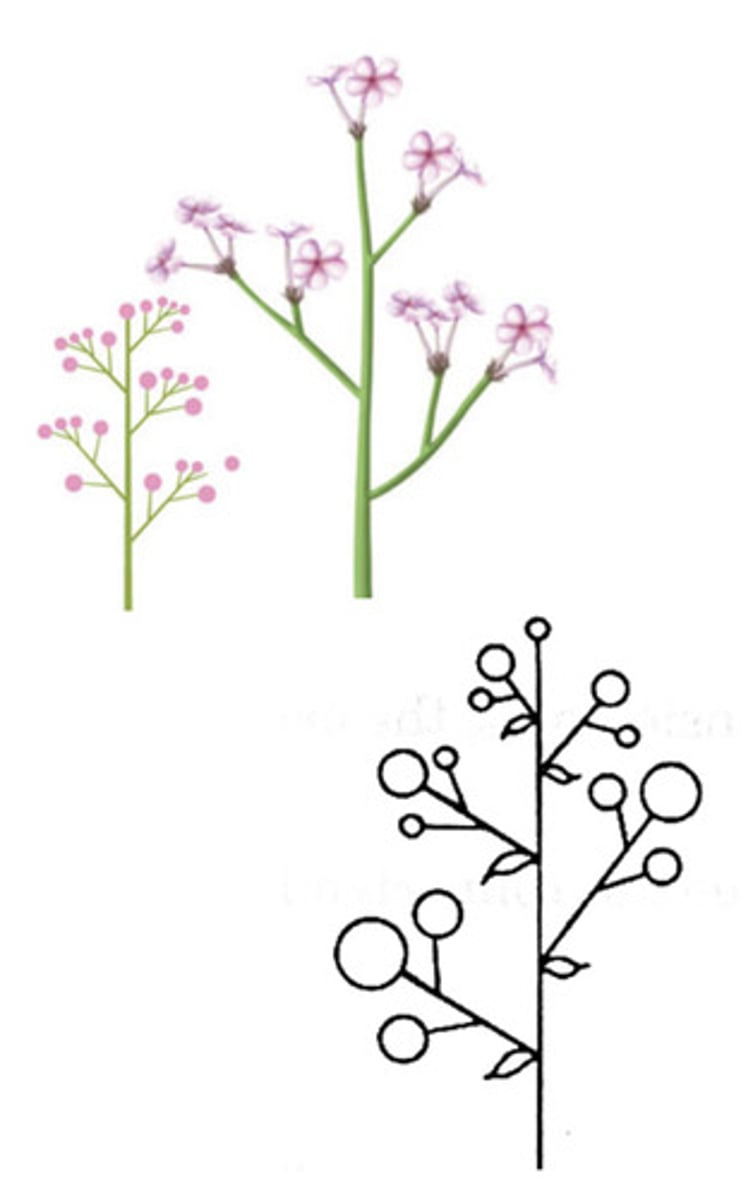
Umbel
Inflorescence consisting of several flowers on pedicels which originate in a whorl from a main stalk (peduncle)- also called simple umbel
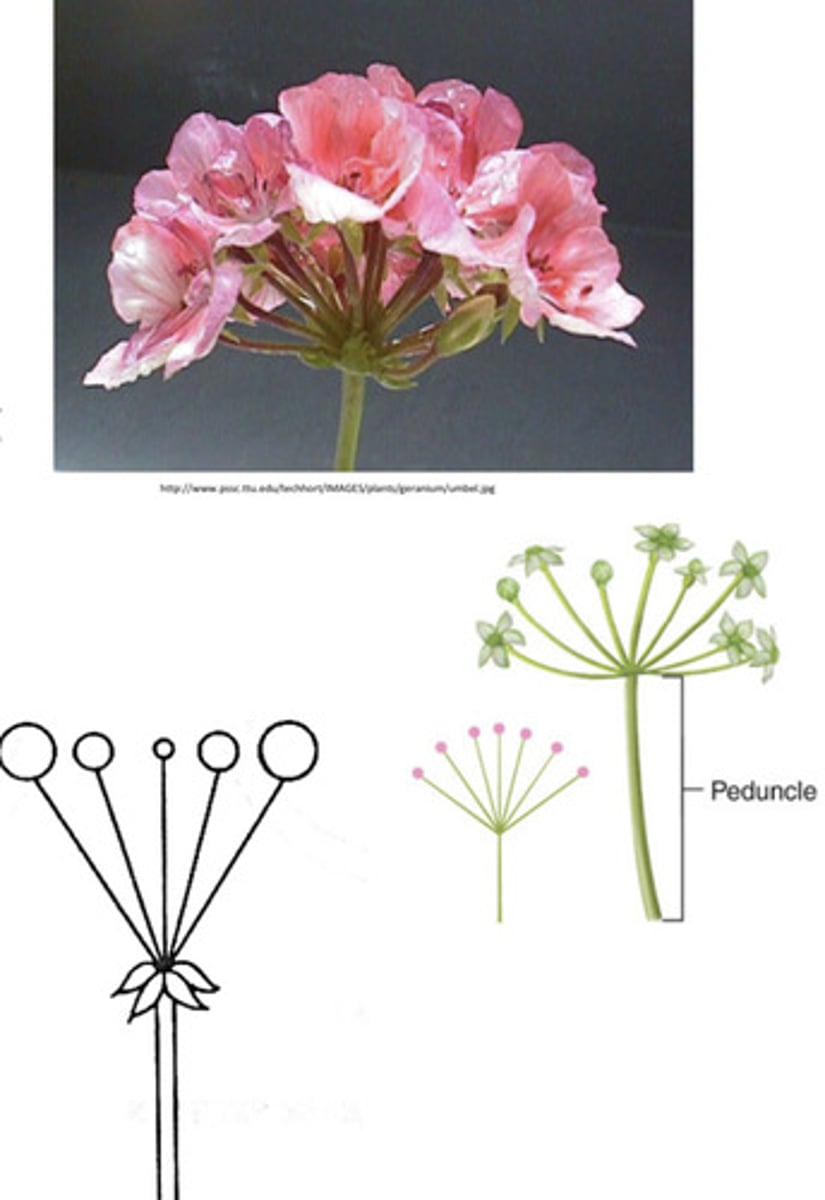
Compound umbel
an umbel of umbels
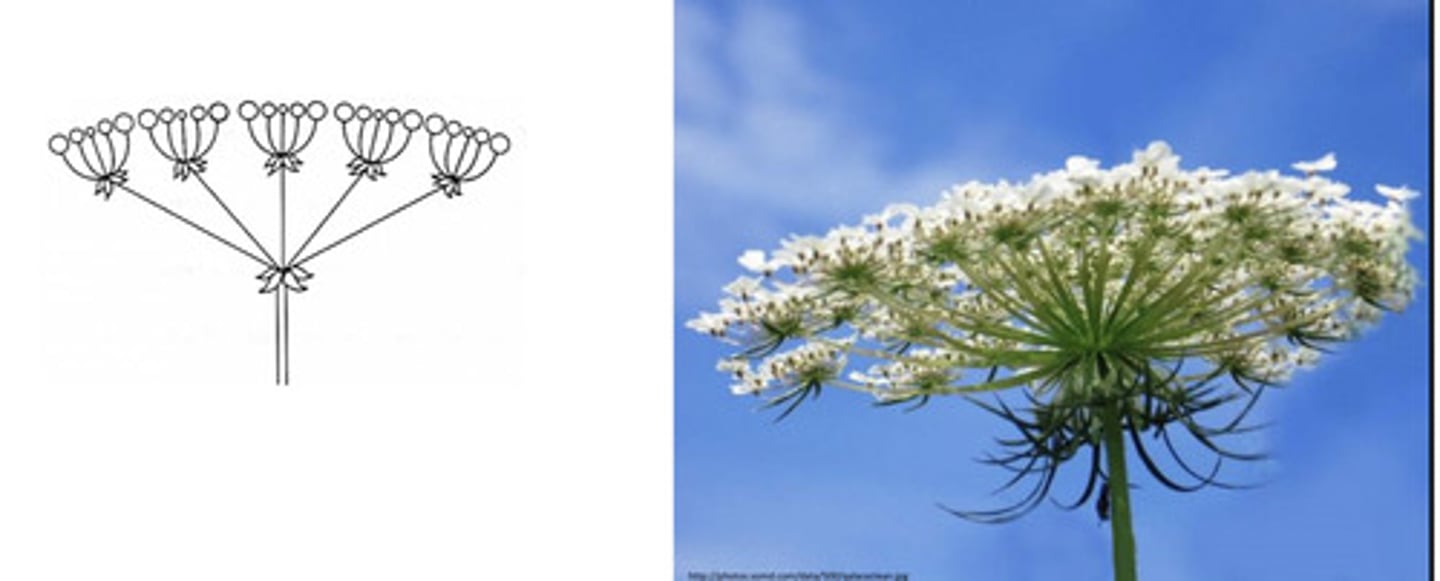
Head
Compact inflorescence consisting of sessile or nearly sessile flowers closely attached to the top of an expanded stem
Ray flowers
Occur on periphery of head- often mistaken for petals
Disk flowers
Occur in center of head- typically smaller and mode inconspicuous than ray flowers
Fruit
Mature ripened ovary and any common structures
Pericarp
Ovary wall
Dry fruits
-ovary tissue is dry when fruit is mature
Dry indehiscent fruits
Do not split open- the fruit rather than the seed is dispersed
Dry dehiscent fruits
Split open and release seeds
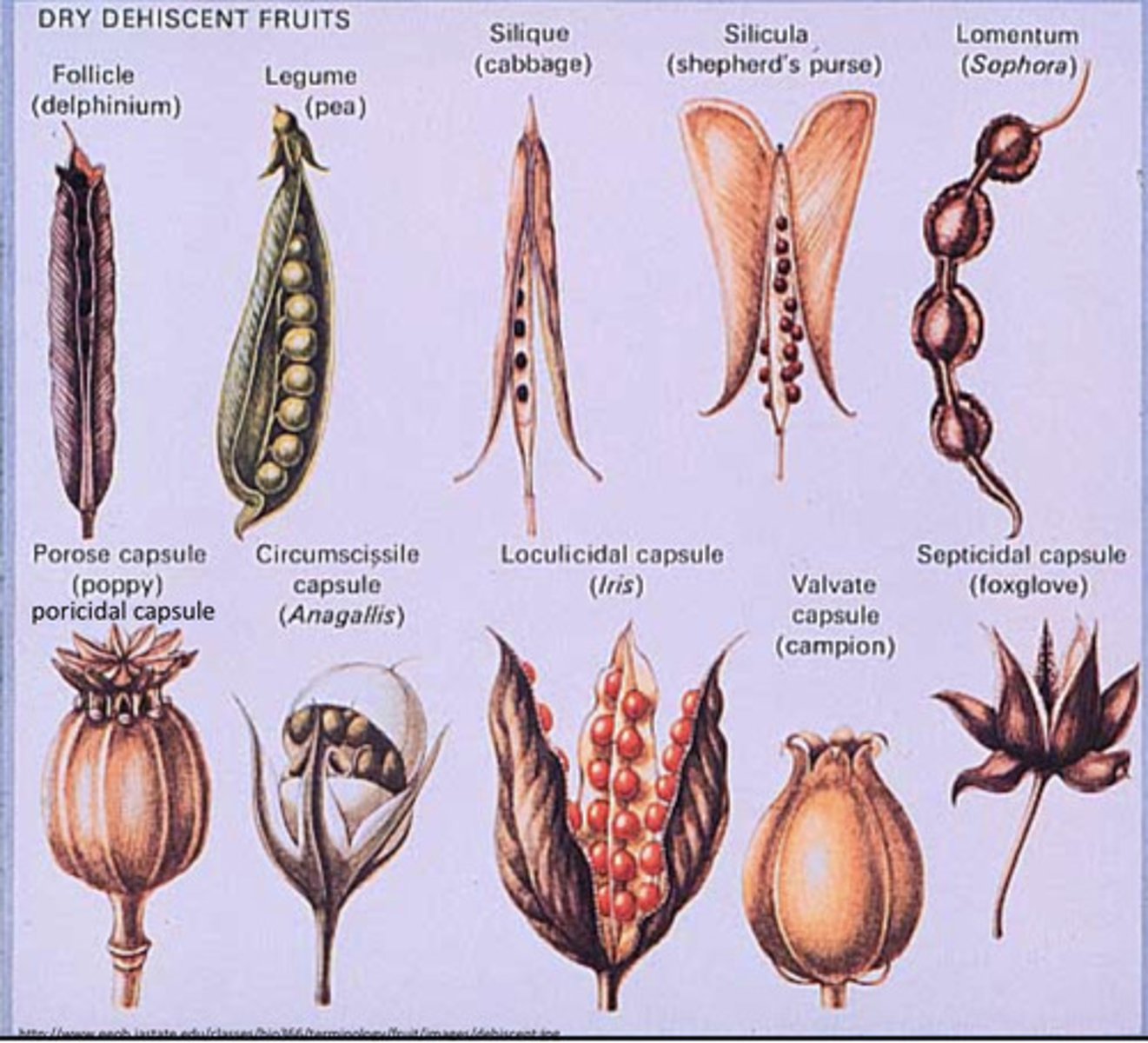
Fleshy fruits
Ovary and associated tissue is moist and juicy when fruit is mature (fruit may be brightly pigmented)
Simple fruits
Form from single ovary
Multiple fruits
Form from multiple flowers on same inflorescence
Aggregate fruits
Typically fleshy fruit that develops from many carpels on a single receptacle of a single flower- each carpel develops into a separate fruitlet- fruitlets mature together as a single unit on a common receptacle, along with any associated fleshy structures → in raspberries each carpel develops into a druplet, in strawberries receptacle becomes fleshy each carpel develops into an achene
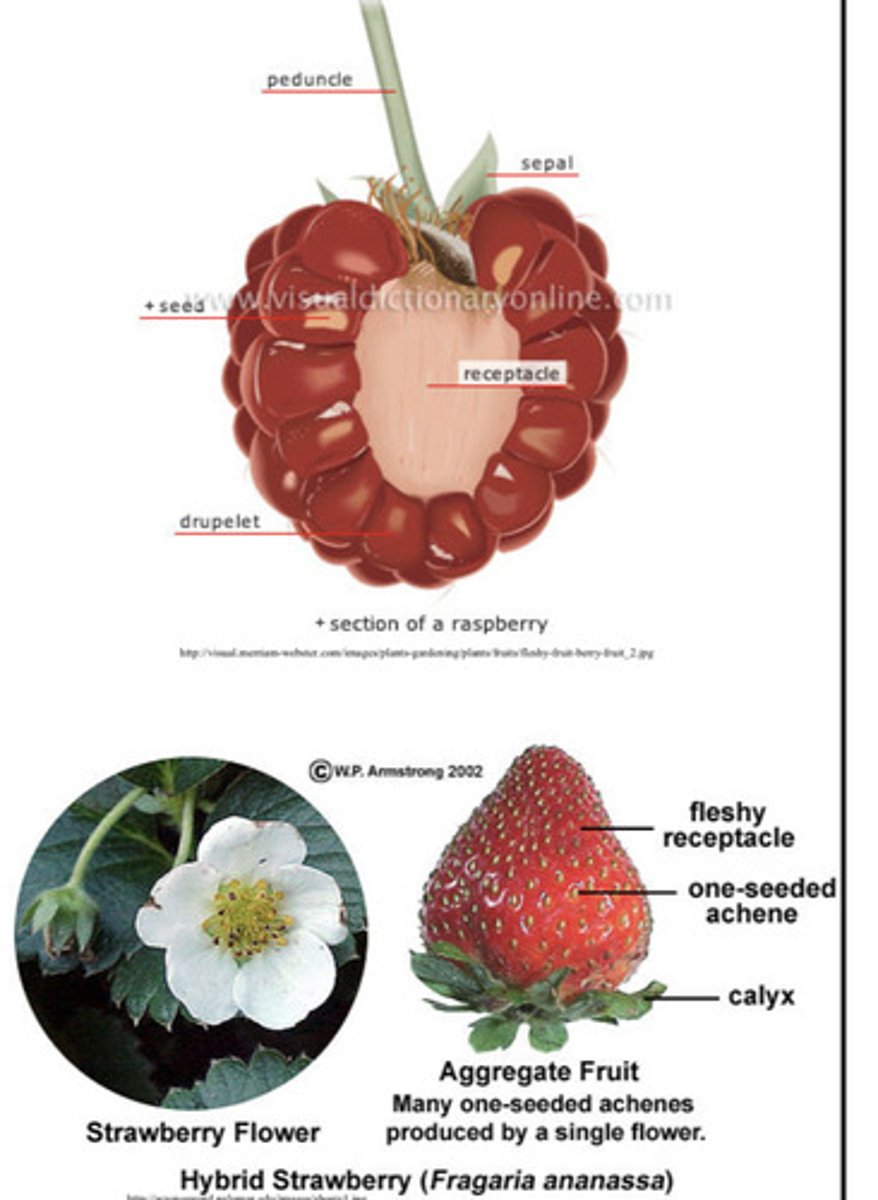
Follicle
Dry dehiscent fruit that develops from a simple pistil and splits along one suture→milkweed pod
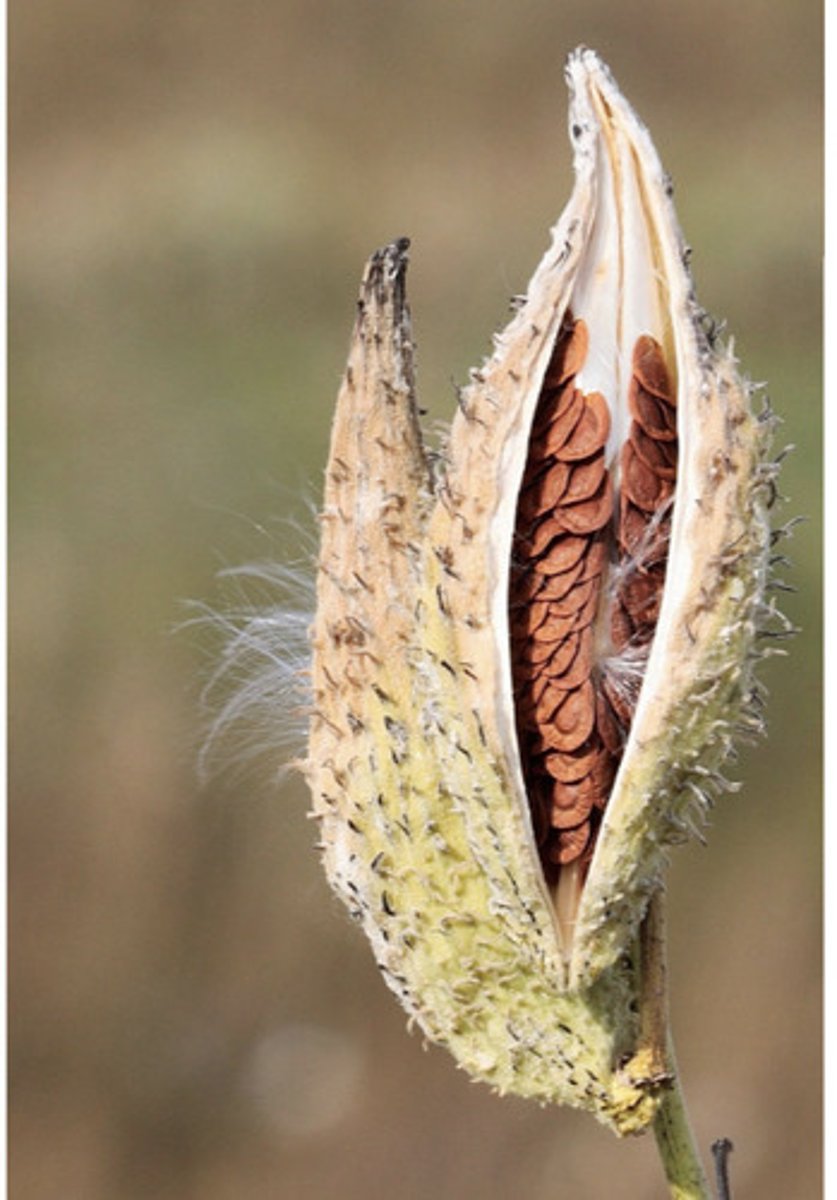
Legume
Dry dehiscent fruit that develops from a simple pistil that splits along two sutures into two values- the edible portion is usually the seeds or immature ovaries with seeds→ peas, beans, peanuts, catalpa
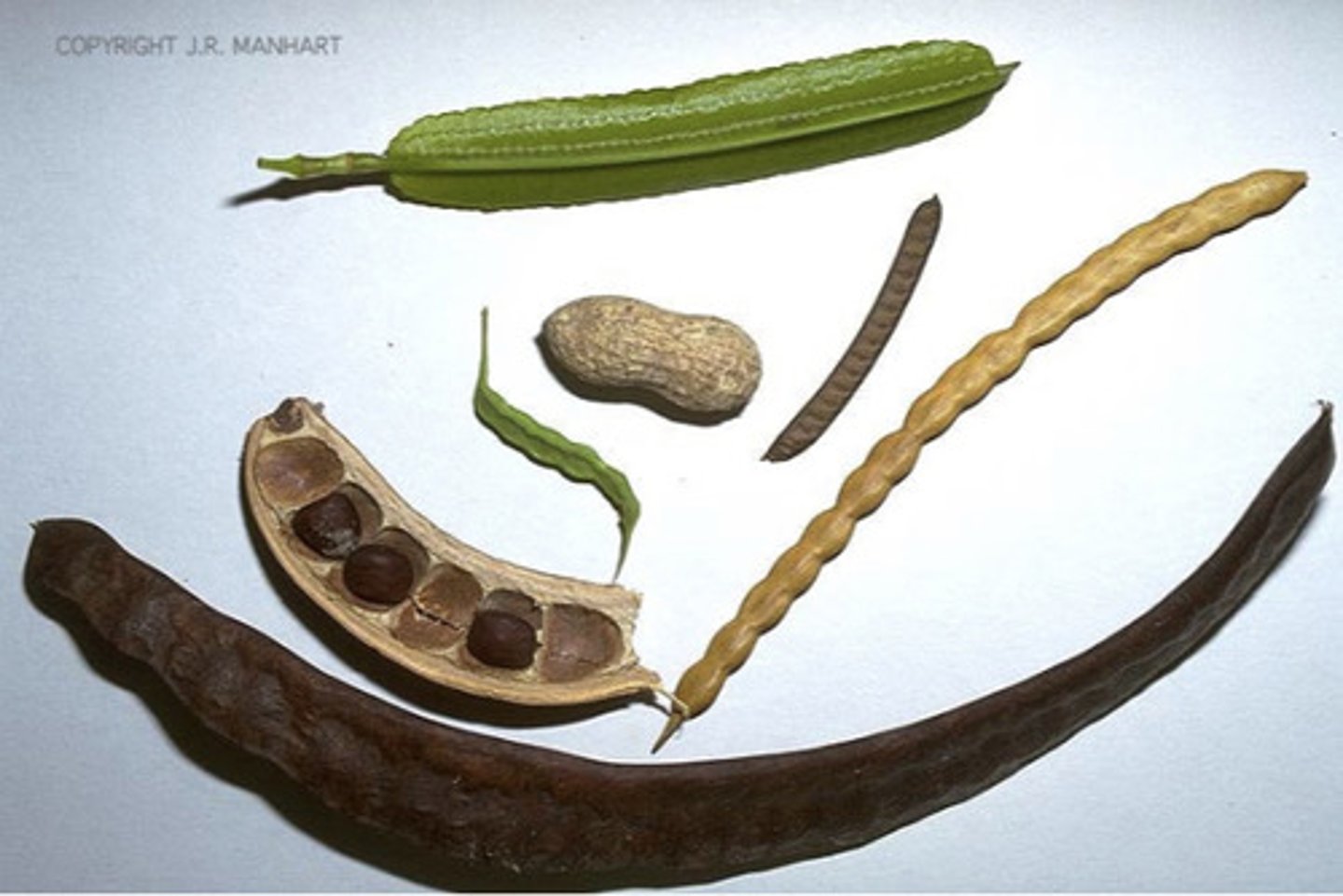
Silique
An elongate dry dehiscent fruit consisting of two compartments separated by a central septum(wall of tissue) to which seeds are attached- typical fruit of mustard family
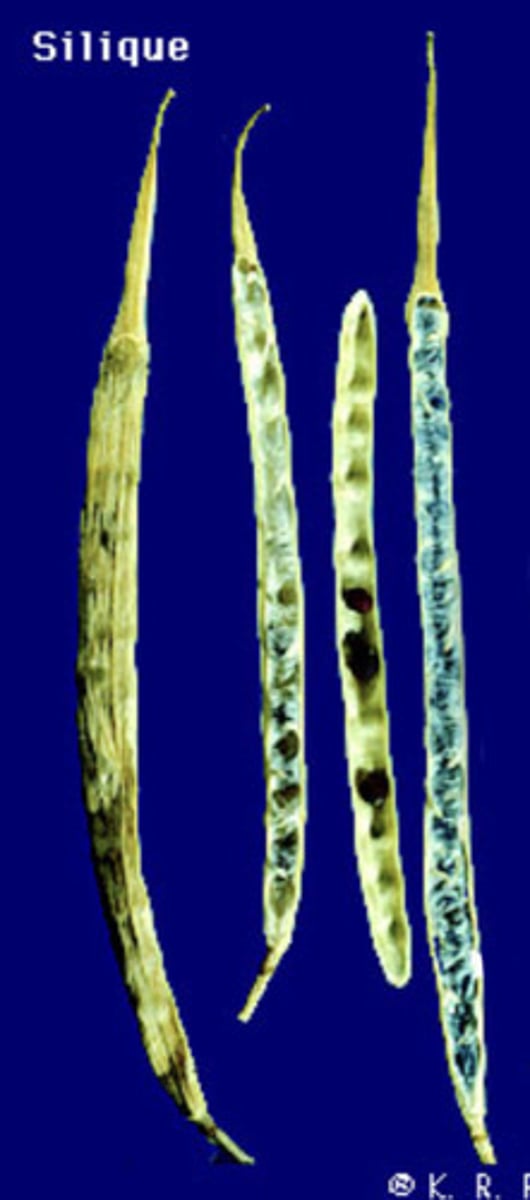
silicle
A short silique
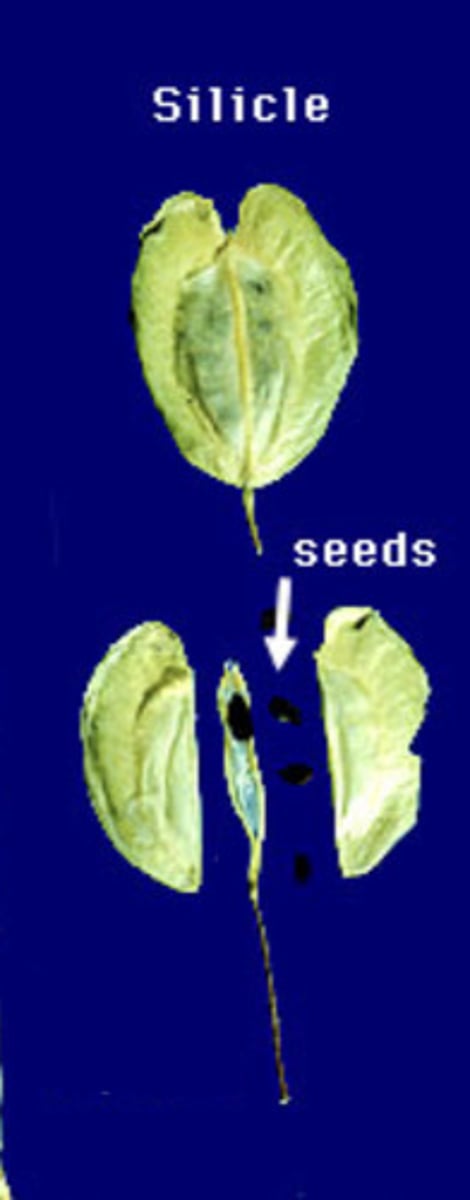
Capsule
Dry dehiscent fruit that develops from a compound pistil - mechanism of dehiscence is variable
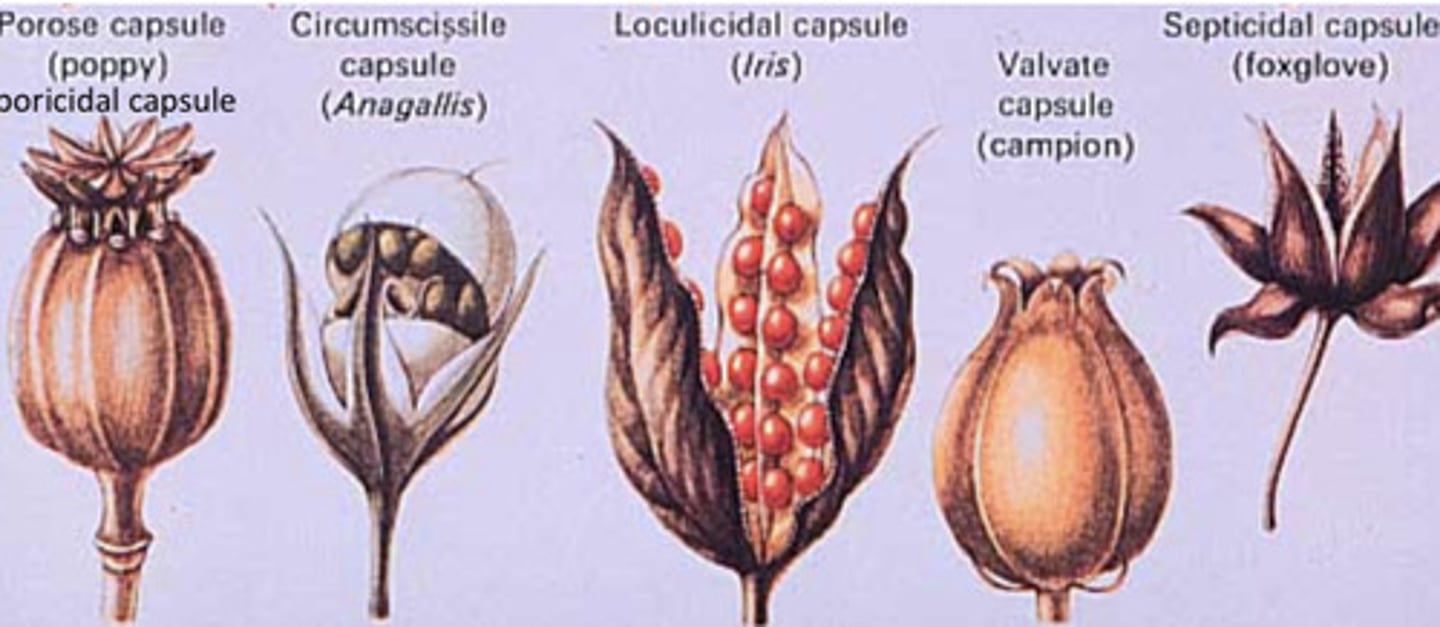
Caryopsis (grain)
Small dry indehescent fruit composed of a single carpel with one seed in which the entire surface of the seed coat is fused to ovary wall- pericarp and seed coat cannot be readily separated-form fibrous tissue called bran → wheat, oats, rice, barley, com kernel
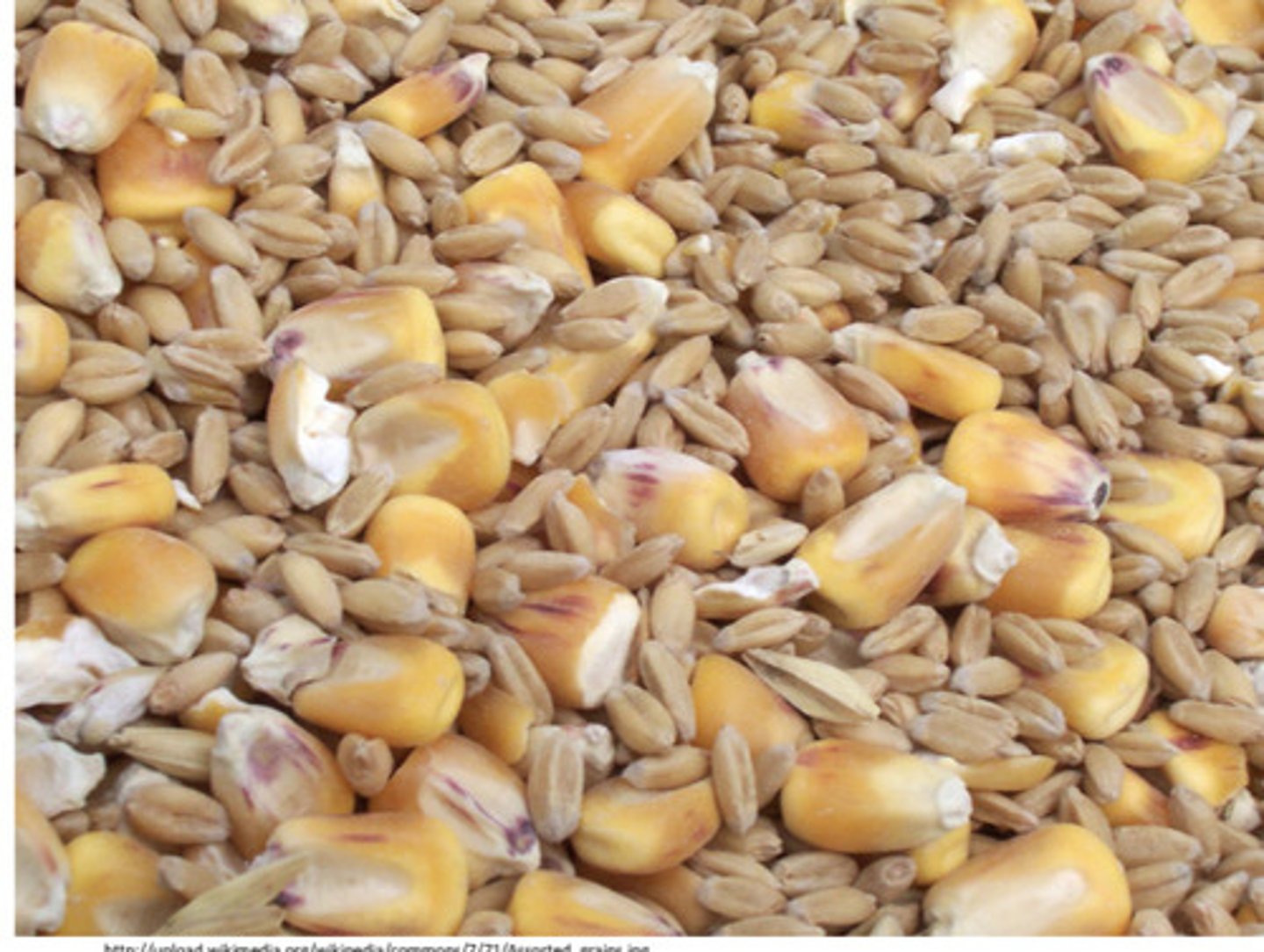
Achene
Small dry indehiscent fruit consisting of singe carpet with one seed, in which there is only one point of attachment of seed to the pericarp - pericarp is readily separable from seed coat→ buckwheat fruits, sunflower fruits
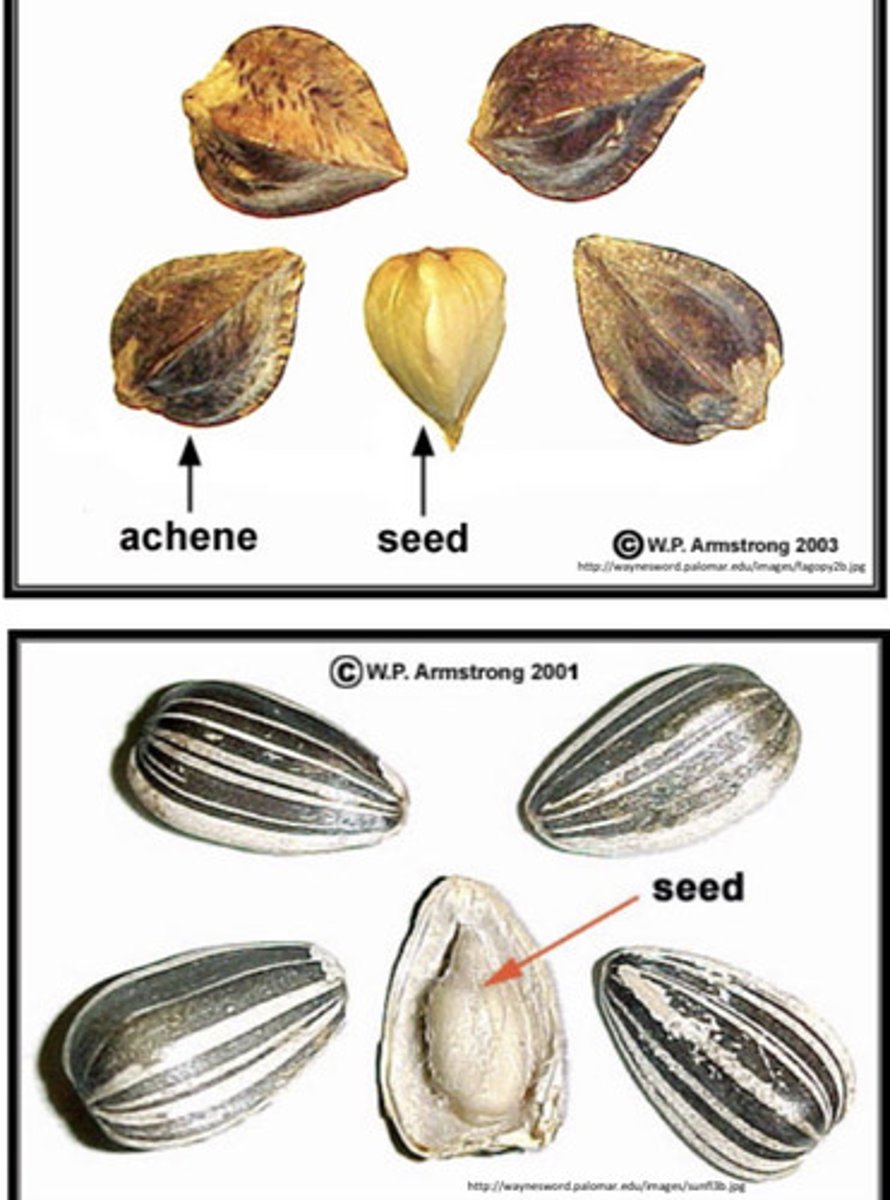
Samara
Winged achene→ box elder fruits, maple fruits
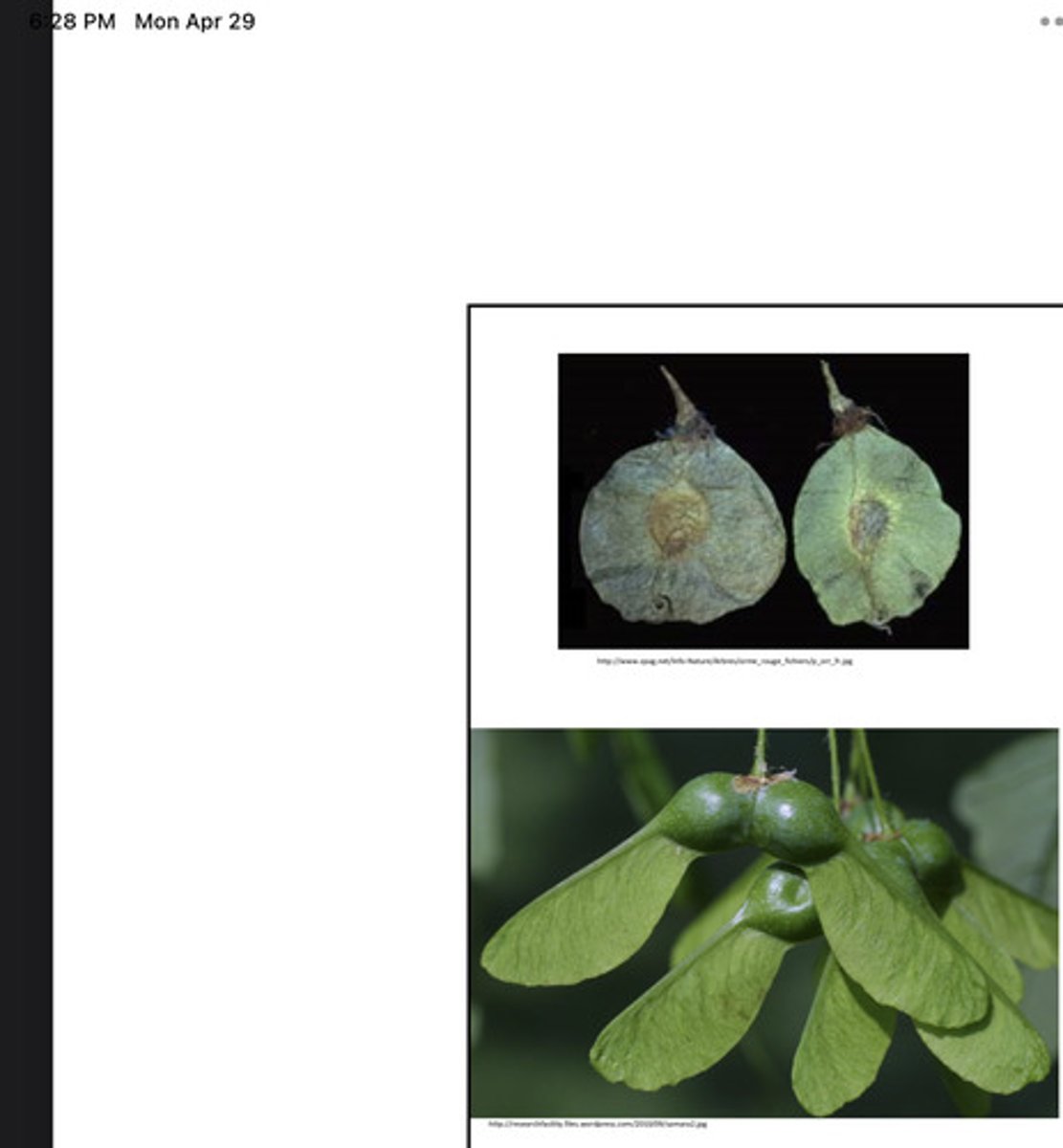
Cypsela
An achene with adherent calyx → fruits of daisies+ dandelions
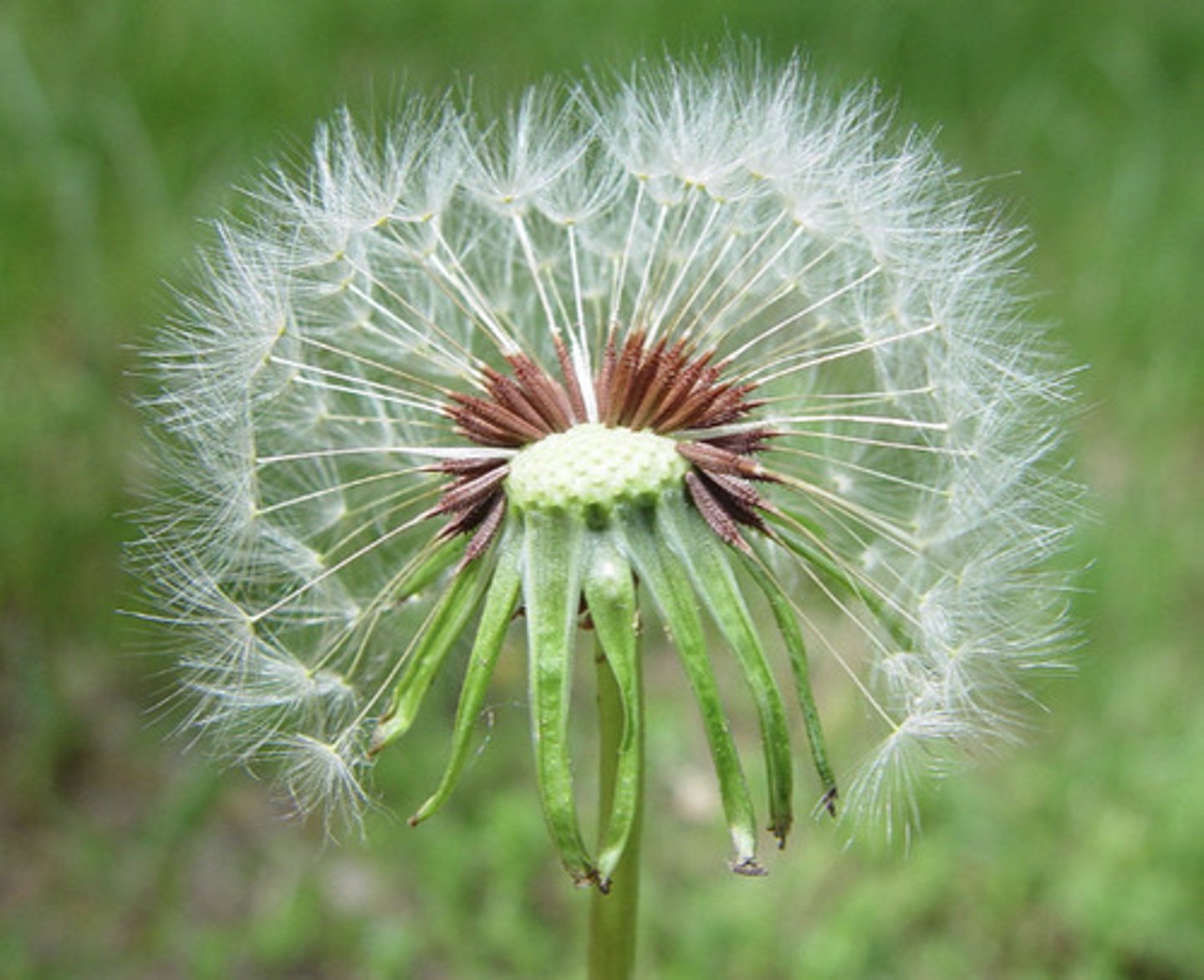
Nut
Dry indehiscent fruit which ① usually develops from compound pistil with one functional carpel ②generally has only one seed ③ has a hard and stony mature ovary wall (pericarp) ④ typically has an involucre ring of bracts at the base of flower)
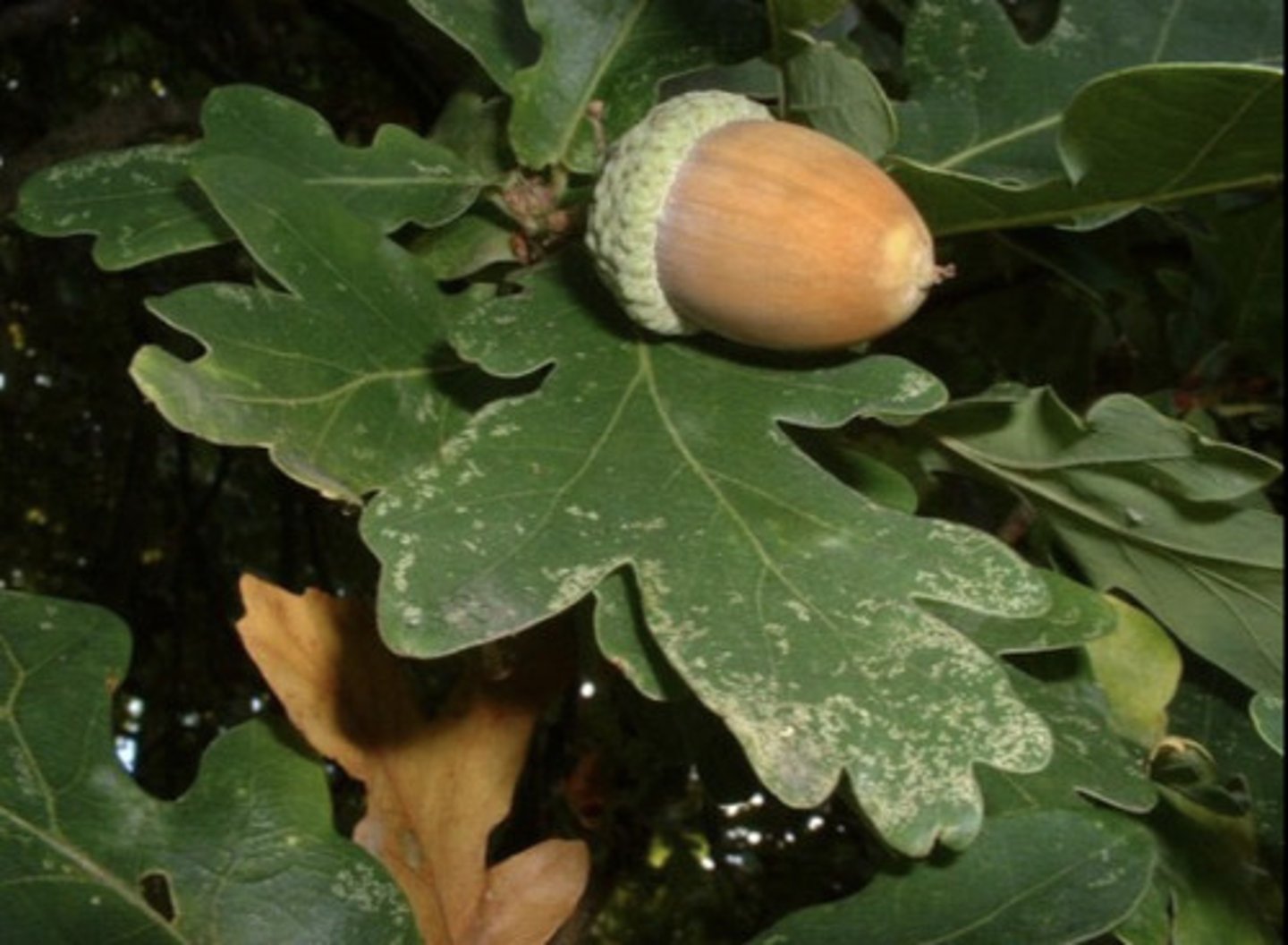
Berry
Fleshy fruit with one or more seeds in which all parts of the pericarp are fleshy or pulpy → grape, tomato, pepper, kiwi
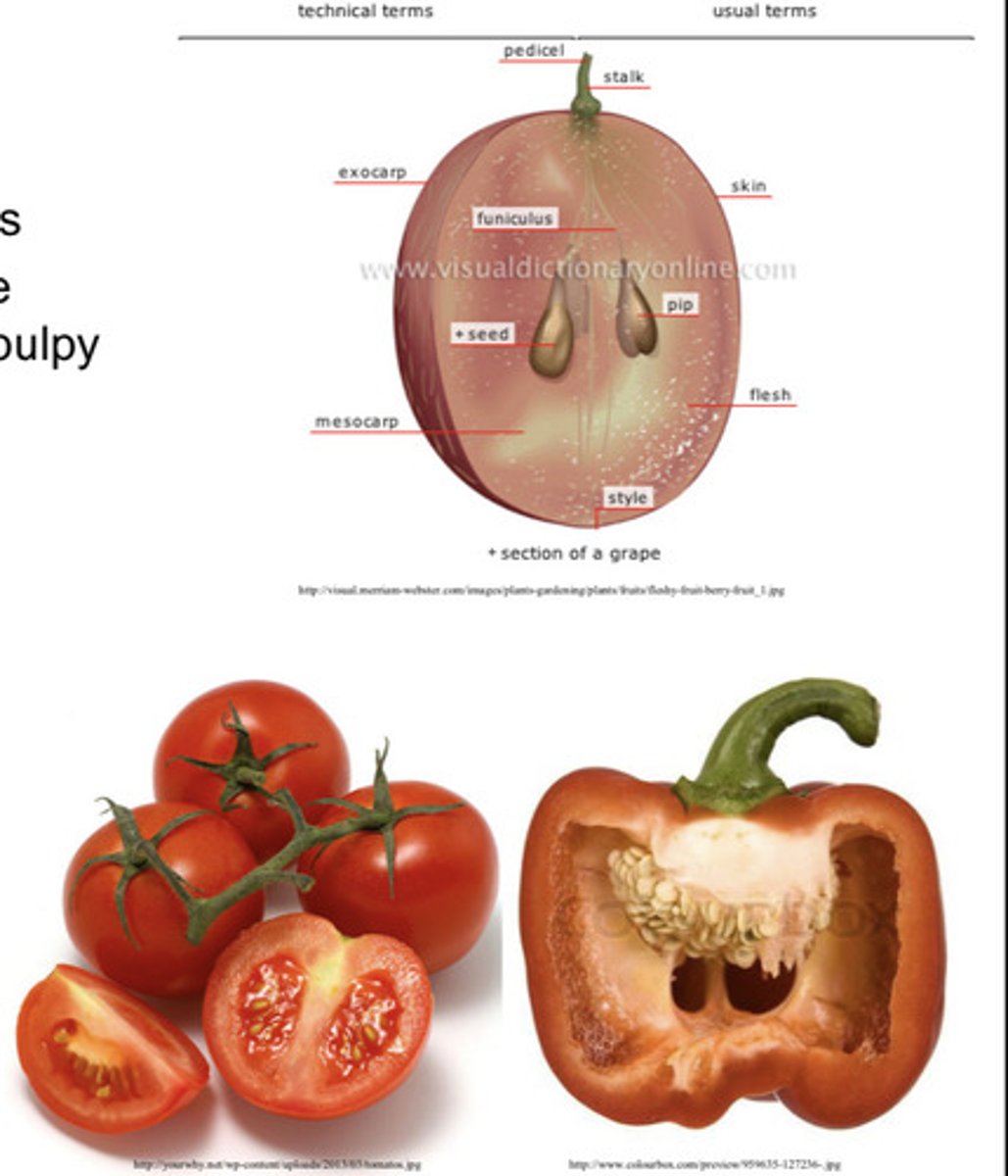
pepo
Berry with a thick inseparable rind→ melons, squash, pumpkin, cucumber, gourds
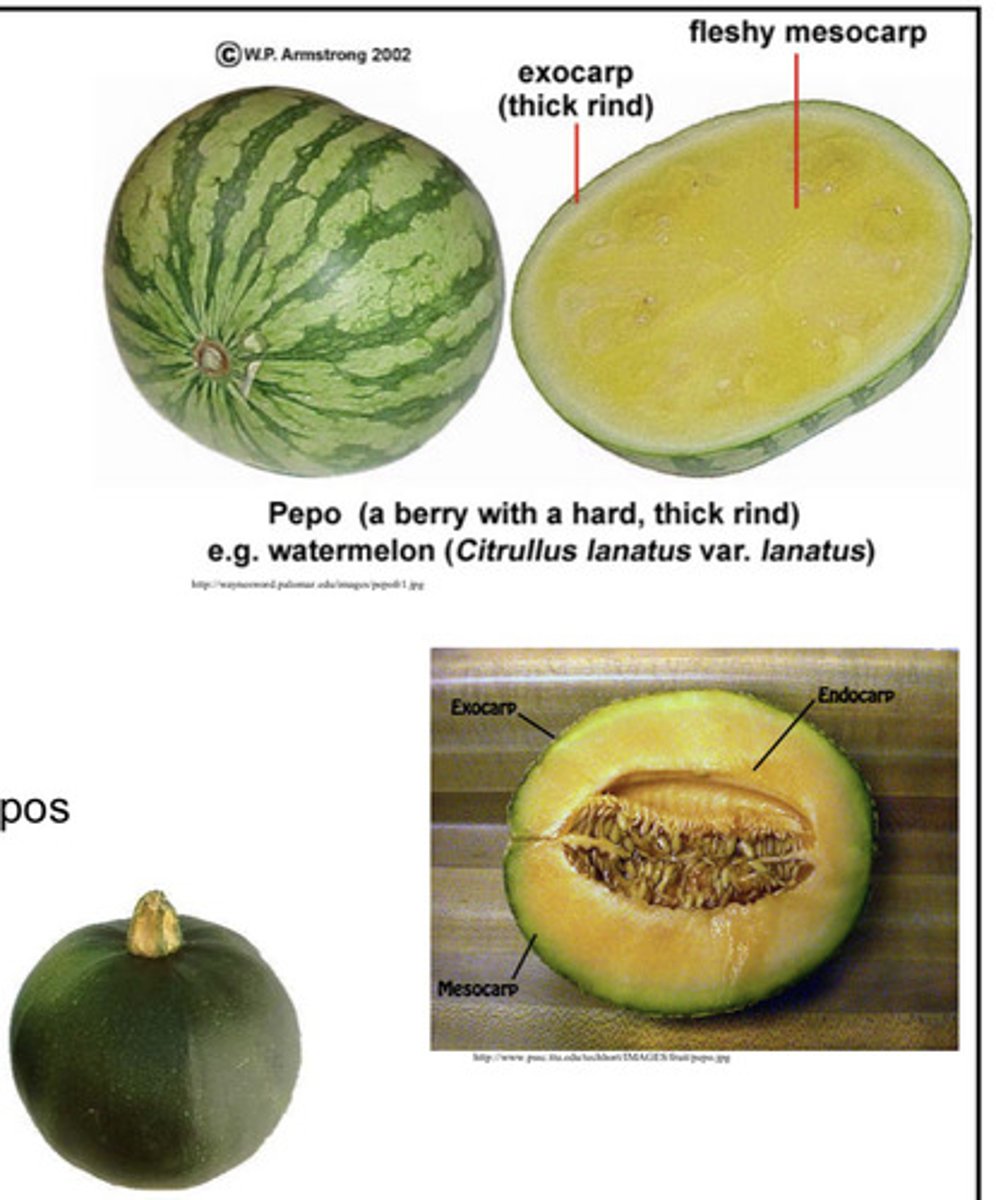
Hesperidium
Berry with a leathery separable rind that contains rind that contains glands which produce aromatic oils → lemon, lime, orange, kumquat, grapefruit
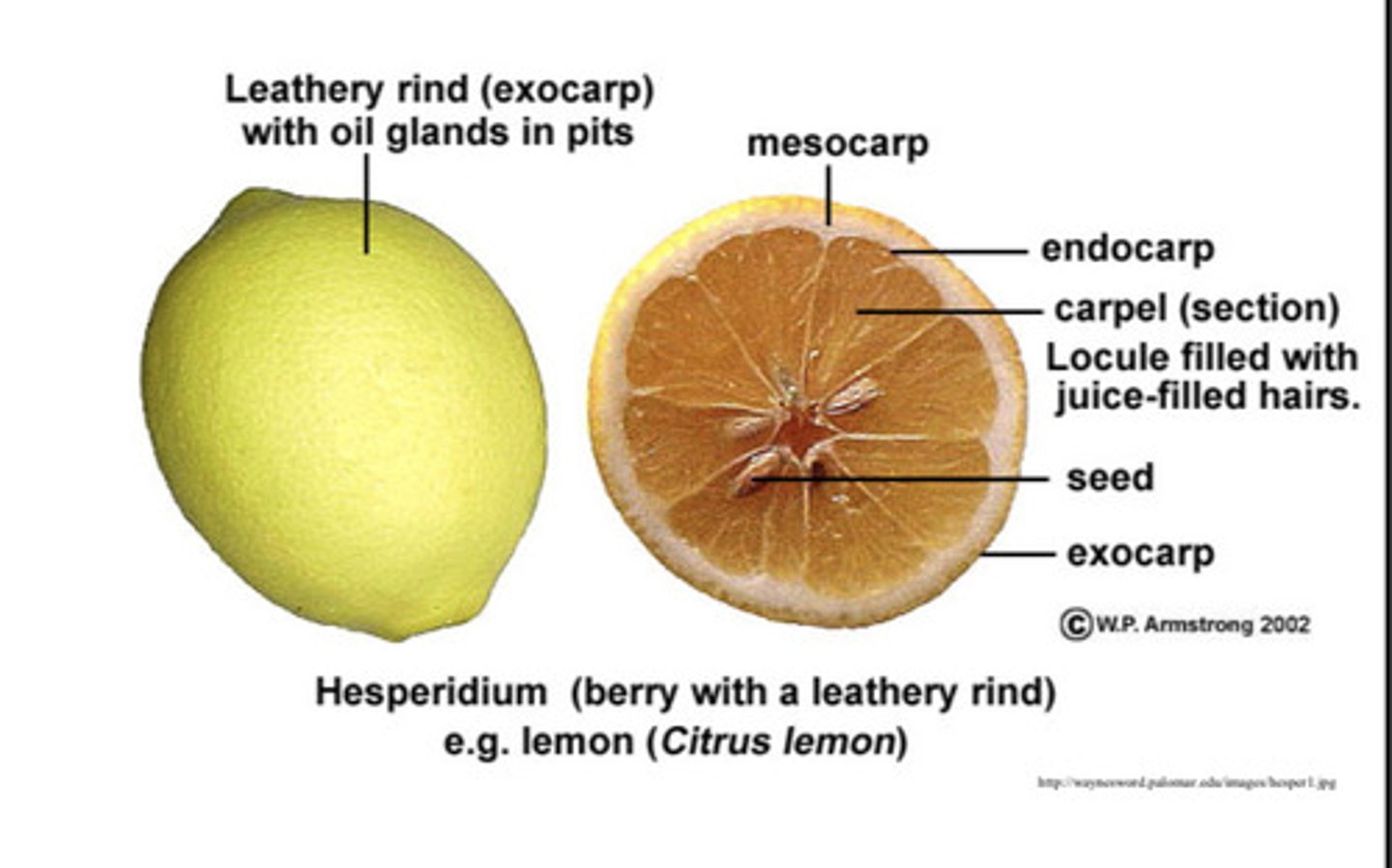
Drupe
Fleshy fruit that typically has one seed, a thin skin like exocarp, fleshy (parenchymatous) mesocarp, story (sclerenchymatous) endocarp which is referred to as a pit → cherries, peaches, almonds, olives, avocados, dates
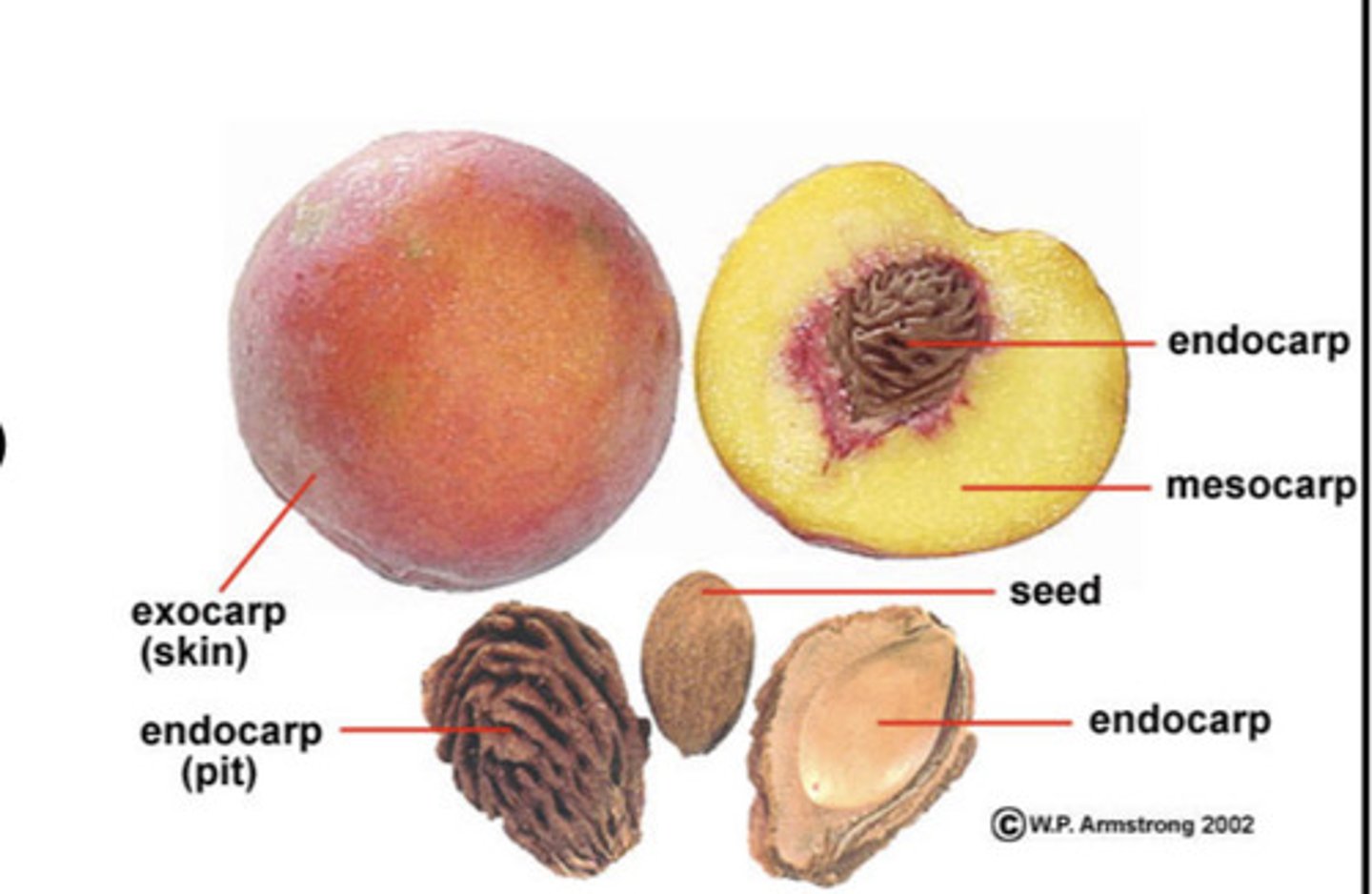
Multiple fruit
Typically fleshy fruit that develops from ovaries of on inflorescence together with any associated accessory structures→ pineapple
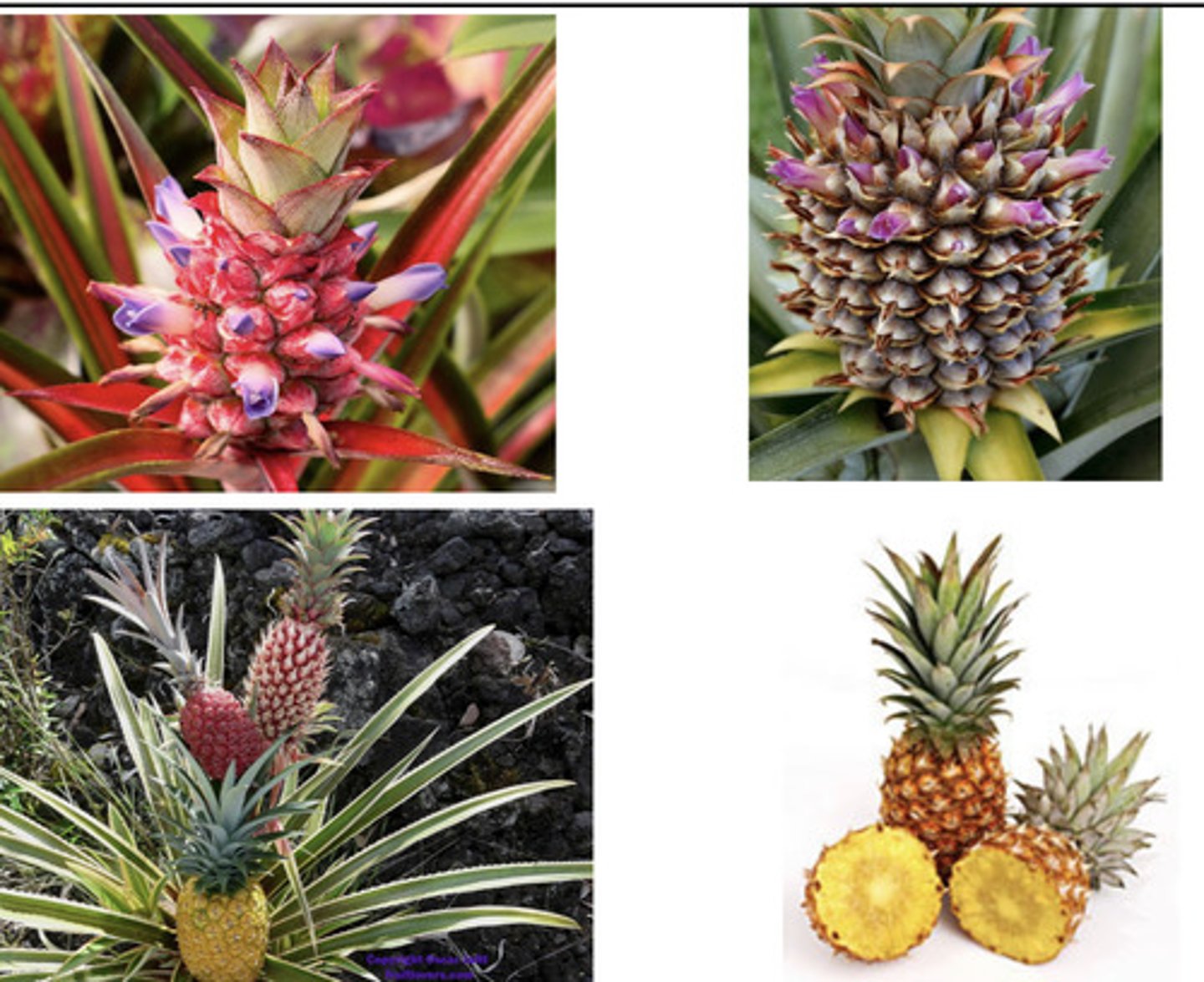
Pome
Fleshy fruit that develops from a flower with a compound pistil and inferior ovary- floral tube becomes part of the fruit, erocorp is thin and skin like, most of pericarp is fleshy, endocarp is cartilaginous → apple, pear, quince, rose hips
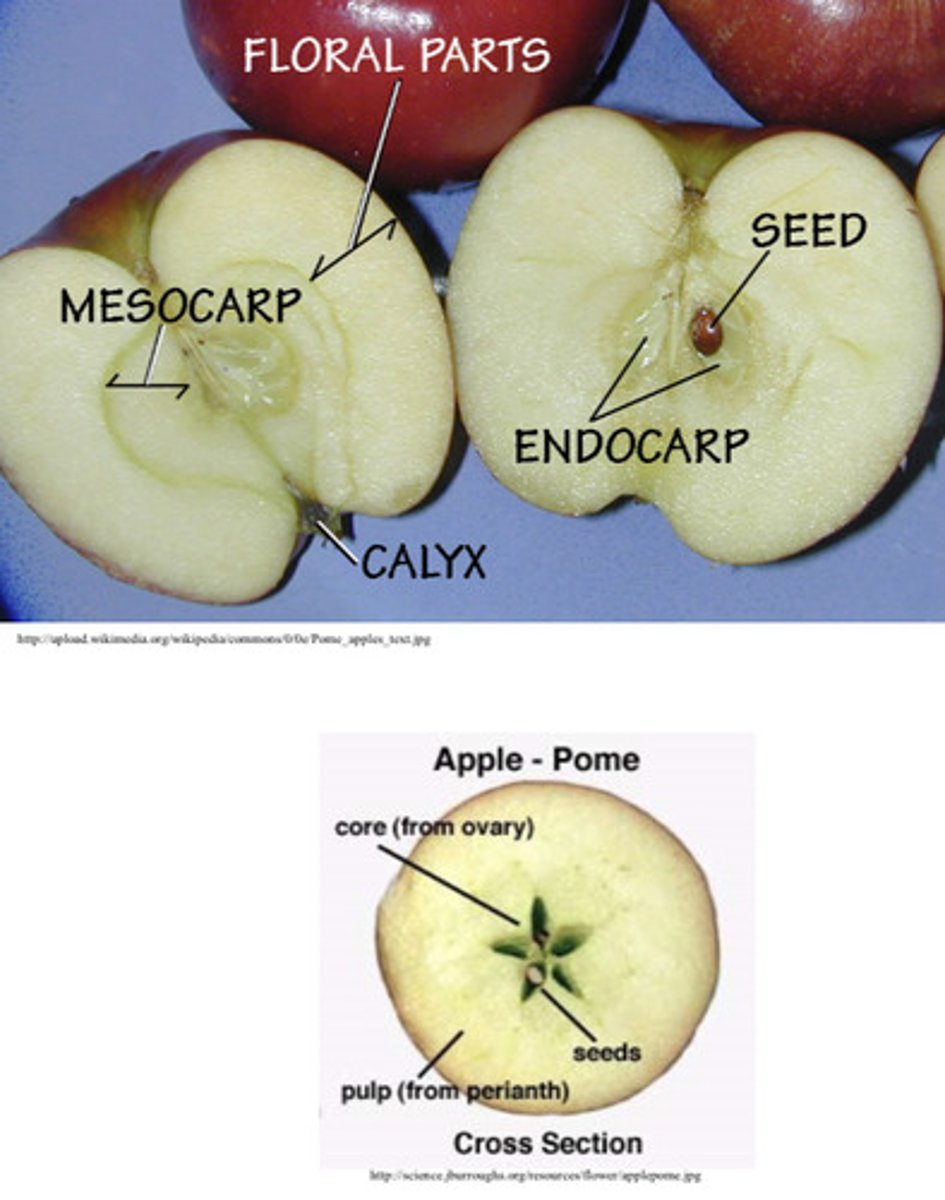
Photoautotrophs
Organisms that convert electromagnetic ray energy into
Chemical energy→some bacteria, all Cyanobacteria,brown algae, red algae,euglenoids, green algae, and plants
Heterotrophs
Organisms that must take in organic molecules and break them down for energy → many bacteria,many protists, fungi, animals
NAD+ and NADP+
Oxidizing agents -remove electrons from other chemicals which forms
NADH and NADPH
Redox potential
A molecules tendency to accept or donate electrons
Cytochromes
Intrinsic membrane proteins that contain a heme cofactor which holds an iron atom →they carry electrons only between sites that are extremely close together within a membrane
Plastoquinones
transport electrons over short distances within a membrane
Plastocyanin
a small protein that carries electrons on a copper atom → loosely associated with chloroplast membranes
Chloroplasts
Site of photosynthesis→ plastids bound by a double membrane and filled with disk like sacs (thylakoids)
granum
Several thylakoids arranged in a stack
Thylakoid space
Fluid contents inside thylakoid
Stroma
Fluid outside the thylakoid but inside the inner chloroplast membrane